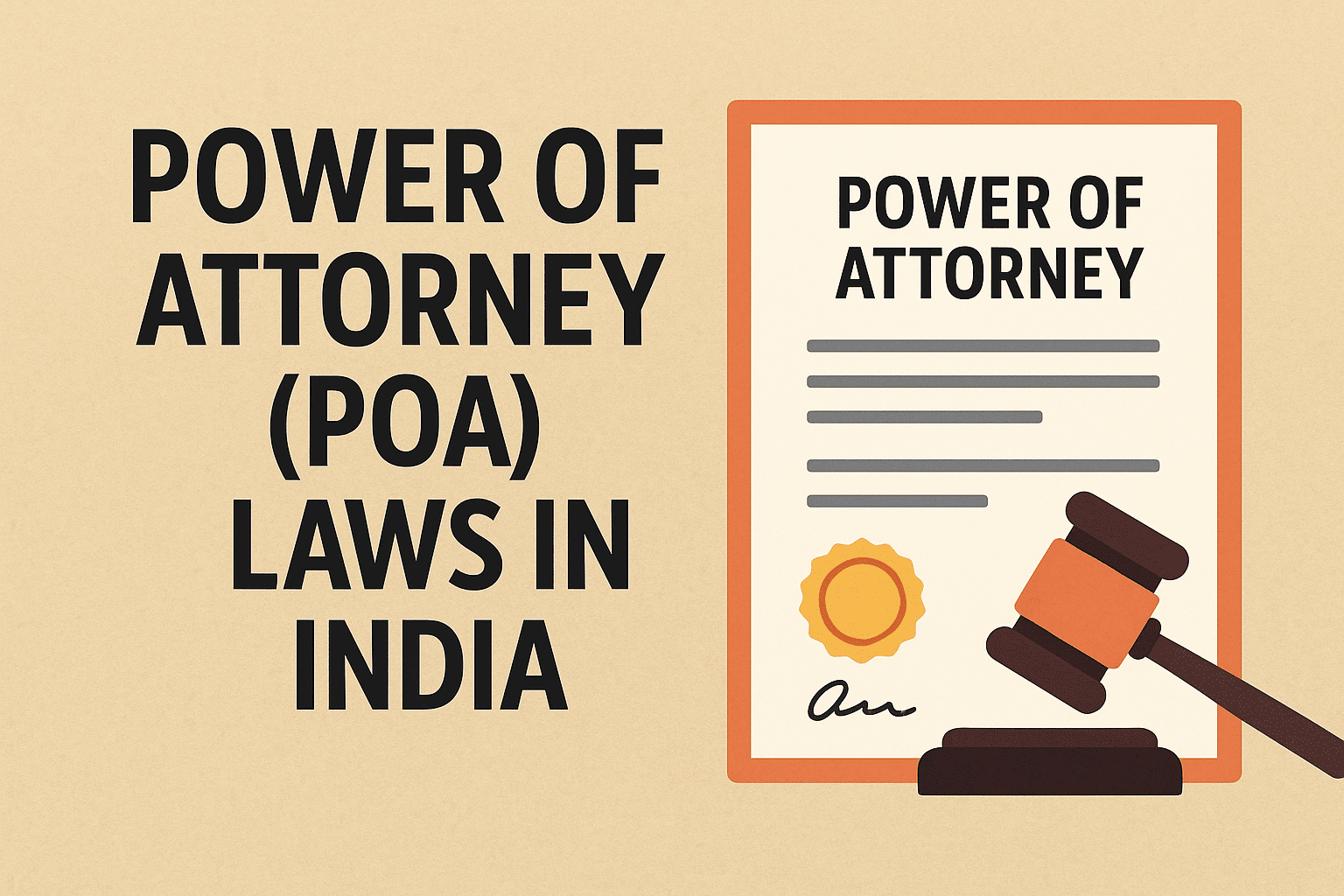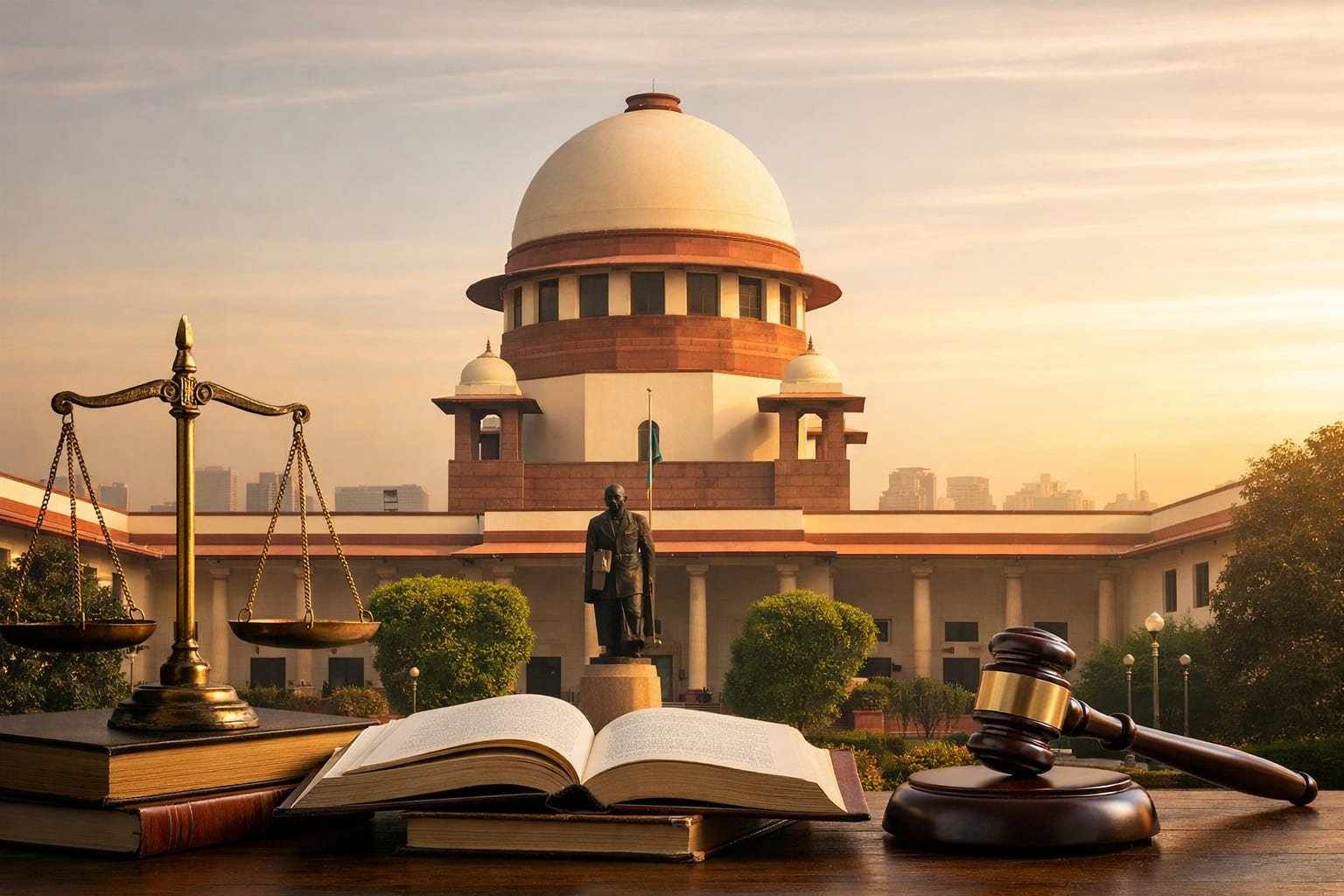In today’s fast-paced world, it is not always possible to be physically present for every transaction or decision that requires your consent. Whether it is managing property, handling financial affairs, or conducting legal proceedings, the Power of Attorney (POA) serves as a vital legal instrument that allows another person to act on your behalf.
Understanding the Power of Attorney laws in India is essential for anyone who needs to delegate authority responsibly. This comprehensive guide, authored by Patrons Legal, a reputable law firm in Delhi, explains the meaning, types, process, legal implications, and key aspects of executing and revoking a Power of Attorney in India.
What is a Power of Attorney (POA)?
A Power of Attorney is a legal document through which one person (the Principal or Donor) authorizes another person (the Agent or Attorney) to act on their behalf.
This authorization can be broad, covering all acts the principal could perform, or limited to specific transactions. Essentially, a POA empowers the appointed person to legally represent, make decisions, and perform certain acts in the name of the principal.
For example:
-
A person living abroad may authorize a relative in India to manage property matters.
-
A business owner may grant a POA to a manager for signing contracts or handling tax filings.
Legal Framework for Power of Attorney in India
Power of Attorney in India is primarily governed by the Powers of Attorney Act, 1882. Additionally, several provisions of the Indian Contract Act, 1872, the Indian Registration Act, 1908, and the Stamp Acts (both Central and State) are relevant in determining the validity and enforceability of a POA.
Key Legal Points:
-
The Act defines the legal authority and responsibility of the agent.
-
A POA must be executed voluntarily, without coercion or fraud.
-
It can be registered before a Sub-Registrar, depending on the type of power granted.
-
The agent must act in good faith and within the authority given.
Types of Power of Attorney in India
Understanding the different types of POA is crucial because the scope and legal consequences vary with each.
1. General Power of Attorney (GPA)
A General Power of Attorney authorizes the agent to act broadly on behalf of the principal in multiple areas, such as managing finances, property, or business operations.
Example:
An NRI gives GPA to a trusted relative to handle rent collection, property sale, or maintenance in India.
Key Features:
-
Broad authority covering multiple actions.
-
Useful for business or personal convenience.
-
May not be valid for property transfer unless properly registered.
2. Special Power of Attorney (SPA)
A Special Power of Attorney gives authority for a specific act or transaction, such as selling a property, signing a document, or attending a court hearing.
Example:
A person authorizes an advocate to appear in court for a specific case.
Key Features:
-
Limited to a specific purpose.
-
Automatically ends once the task is completed.
-
Often used in real estate or litigation matters.
3. Durable Power of Attorney
A Durable POA remains valid even if the principal becomes mentally incapacitated. While not explicitly recognized under Indian law as a separate category, it is conceptually similar to an irrevocable POA.
4. Irrevocable Power of Attorney
An Irrevocable POA cannot be revoked by the principal, usually because it is granted for valuable consideration or forms part of a contractual obligation.
Example:
A builder or developer holding an irrevocable POA for property development.
5. Medical or Health Care Power of Attorney
This type allows the agent to make health and medical decisions on behalf of the principal in case of incapacity or illness. Though less common in India, it is gaining recognition in advanced directives and elder care planning.
When Should You Use a Power of Attorney?
A Power of Attorney can be useful in several circumstances, such as:
-
When you live abroad (NRI), and need someone in India to manage your property.
-
If you are unable to handle business transactions due to health or travel restrictions.
-
When delegating authority to a trusted person for specific legal, financial, or property matters.
Common Situations Include:
-
Property sale, purchase, or registration.
-
Managing bank accounts or investments.
-
Representing before tax authorities or courts.
-
Handling business transactions or contracts.
How to Create a Power of Attorney in India
Creating a Power of Attorney requires attention to legal details. Here is a step-by-step process:
Step 1: Draft the Document
The POA should be drafted clearly, mentioning:
-
Full details of the principal and agent.
-
Purpose and scope of authority.
-
Duration and conditions.
-
Signatures and date of execution.
It is advisable to have a lawyer draft the document to ensure accuracy and compliance.
Step 2: Stamp Duty
Every POA must be executed on stamp paper of appropriate value as per the Indian Stamp Act or the respective State Stamp Act.
Stamp duty varies by state and the nature of authority granted.
Step 3: Execution
The principal must sign the POA in the presence of two witnesses, who must also sign and provide identification.
If the POA is being executed outside India (for example, by an NRI), it must be:
-
Notarized by the Indian Embassy or Consulate, and
-
Adjudicated (verified) in India within 3 months of arrival.
Step 4: Registration (if required)
Registration is mandatory for certain types of POA, particularly those involving the transfer or sale of immovable property under Section 17 of the Registration Act, 1908.
You can register the POA at the office of the Sub-Registrar in the jurisdiction where the property is located.
Step 5: Delivery & Use
Once executed and registered, the attorney can use the POA to perform the authorized acts within the defined limits.
Power of Attorney for NRIs
For Non-Resident Indians (NRIs), a POA is an essential tool to manage affairs in India.
Typical Uses:
-
Managing or selling property in India.
-
Handling bank accounts or investments.
-
Representing before government offices or courts.
Execution Process for NRIs:
-
Draft the POA as per the Indian legal format.
-
Get it notarized at the Indian Embassy/Consulate.
-
Send the notarized document to India.
-
Have it adjudicated at the local District Registrar’s office.
Pro Tip: Always appoint a trustworthy person as your attorney to avoid misuse or fraud.
Revocation or Cancellation of Power of Attorney
A POA can be revoked or canceled under certain circumstances.
Methods of Revocation:
-
By Act of Principal: The principal can cancel the POA by issuing a revocation notice.
-
By Mutual Agreement: Both parties may agree to terminate it.
-
By Completion: A Special POA automatically ends once the specific act is completed.
-
By Law: POA ends if the principal or agent dies, becomes insane, or becomes insolvent.
Irrevocable POA:
If the POA is coupled with interest or consideration, it cannot be revoked unilaterally.
Legal Step:
File a Deed of Revocation and, if registered, ensure cancellation is recorded with the Sub-Registrar.
Important Judicial Precedents
Several judgments have clarified the legality of POAs in India:
-
Suraj Lamp & Industries Pvt. Ltd. v. State of Haryana (2011):
The Supreme Court held that a Power of Attorney cannot be used to transfer property title. Only a registered sale deed can do so. -
Lakshmi Amma v. Taluk Land Board (1992):
The Court emphasized that a POA must clearly define the authority granted to avoid misuse. -
Ram Kumar v. State of U.P. (1976):
Established that an attorney’s actions beyond authority are not binding on the principal.
These rulings reinforce the need for clear drafting and lawful execution of POAs.
Common Mistakes to Avoid
-
Executing POA without proper legal advice.
-
Granting excessive powers to the agent.
-
Not registering POA for property-related transactions.
-
Failing to revoke the POA after completion of the purpose.
-
Not verifying the integrity of the agent.
Advantages of Power of Attorney
✅ Convenient for managing affairs remotely.
✅ Saves time and legal hassle in routine transactions.
✅ Ensures continuity of business or legal operations.
✅ Legally valid and enforceable if executed properly.
Disadvantages and Risks of POA
⚠️ Misuse of authority by the agent.
⚠️ Risk of fraud or unauthorized transactions.
⚠️ Legal complications if not properly registered.
⚠️ Can be challenged if executed under duress or without free consent.
Pro Tip: Always consult experienced legal professionals like Patrons Legal before creating or signing a Power of Attorney.
Why Legal Guidance Matters
Drafting and executing a POA may appear simple, but minor errors can lead to significant legal consequences. At Patrons Legal, our experienced civil lawyers ensure that every Power of Attorney is:
-
Legally sound,
-
Properly drafted and stamped,
-
Registered when required, and
-
Protected against potential misuse.
Our team also assists in the revocation of Power of Attorney, adjudication of foreign POAs, and court representation in disputes arising out of POA misuse.
Conclusion
A Power of Attorney (POA) is a powerful legal instrument — but only when executed with precision and understanding. It provides flexibility and convenience in handling personal, financial, and legal matters, especially for individuals living abroad or unable to act personally.
However, it’s crucial to ensure that your POA complies with Indian laws, protects your interests, and minimizes risks. For that, professional legal support is indispensable. If you are planning to create, register, or revoke a Power of Attorney in India, contact Patrons Legal, one of the most trusted law firms in Delhi, specializing in property and legal documentation.








Leave a Reply